CCTV re-exposes homework App chaos. WeChat official account hides 100 online games including pornographic games.
CCTV News:Mobile phone application software, also known as App, with the rapid development of mobile Internet, the functions and classifications of App are more diverse. In November last year, CCTV news channel exposed the chaos of pornographic content in the "learning App for primary and secondary school students". Recently, parents in Chongqing, Guangdong, Beijing and other places have reported that the chaos of learning apps has come back, and the homework apps recommended by many schools have become hiding places for online games.
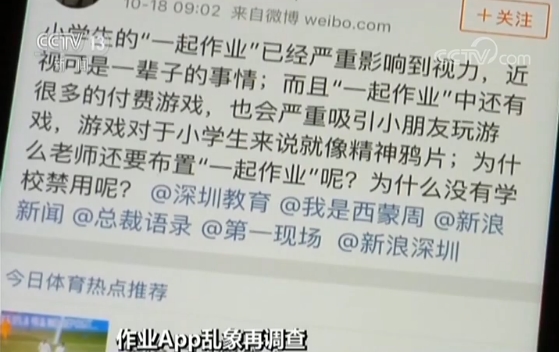
Recently, Mr. Zhao from Shenzhen told reporters that his son, who is in the third grade of elementary school, uses a mobile phone App called "A Primary School Student" every day because the teacher has to arrange homework on it. Recently, he found that the child continued to hold the mobile phone after completing the homework in the App. When he looked carefully, he found that the interface of online games Appeared in this app.
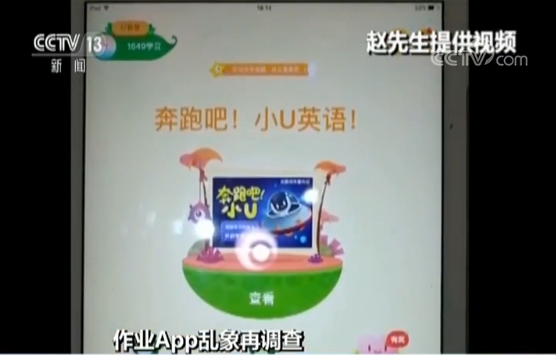
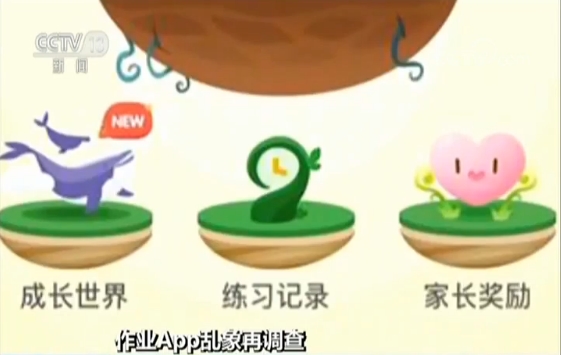
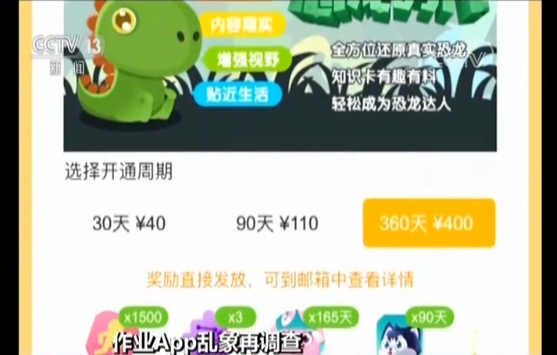
Mr. Zhao provided the reporter with a screenshot of the page of this App. Apart from the tips of "whether the teacher arranges homework", there are also sections such as "Growing World", "Parents’ Reward" and "Tasks". But Mr. Zhao reflected that online games appeared in the section of "Growing World", and children can get certain scores by completing tasks, and the scores can be exchanged for virtual currency, so as to buy props or raise electronic pets to play PK with their classmates. Not only that, users can also choose to pay directly in the "mall" to buy game props. Mr. Zhao is worried that the children are addicted to the games in this App, but in the face of the teacher’s request, he has to agree that the children will continue to use it.
Coincidentally, Mr. Xiong from Beijing also told reporters that this "One Primary School Student" homework App was installed under the recommendation of the school teacher. The teacher can arrange homework on it and then send the students’ completion to WeChat group, as long as parents do not follow the requirements, they will be urged. Mr. Xiong said that there are so many settings of "game form" in this App that it is easy to cause children’s buying impulse. In less than two months, he has made 13 purchases at the request of his children and spent more than 1,200 yuan.
In the survey, CCTV reporters also found that some operators who study App, in addition to using the guise of teaching to promote games, have a more "slick" approach, which is to transfer the game channel in App to WeChat WeChat official account, and guide primary and secondary school users to places outside the App in an attempt to escape supervision.
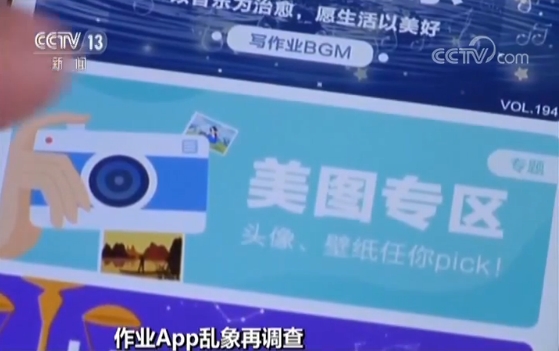
In September this year, some parents reported that there were a lot of content unrelated to learning in an App called "Interactive Homework". The reporter saw in this App that in one-third of the interface, the scrolling words of "DIY by hand", "Meitu area" and "Twelve constellations" are very eye-catching, and clicking on the "recess" section in the interface will enter the column area of these scrolling words. One of the columns called "Little Mutual Talk" is marked with the following words — — "Words, music and movies hope to become a spiritual place in the hearts of students".
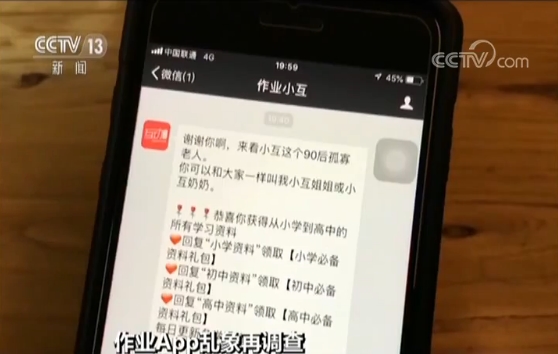
After parents reported that these contents would affect students’ learning, "interactive homework" closed the "small talk" section. However, the reporter found that this App has started an article on content rectification. "Interactive Homework" opened the WeChat WeChat official account at the same time as the App, and named it "Homework Little Mutual". On October 13th, the reporter entered this WeChat WeChat official account and found that in addition to the "answer query" column in the "Interactive Homework" App, the "latest game" column was placed in the middle position. Click on it and there will be games such as "circle of friends" and "the richest man", and the "game hall" contains nearly 100 online games.


The reporter found that in the interface before entering each game, it was written in bold font, "Don’t play the game after finishing your homework?" Do you want to be a nerd! " . In the game called "circle of friends", users get points by throwing dice, and when the points reach a certain number, the game sets up a link of "visiting friends", and a female avatar user marked "online" is recommended by the system to click and visit. At the same time, the game also set up a "world chat" section. The reporter clicked into it and found a lot of information about making friends, some of whom used pictures of scantily clad clothes as avatars.
WeChat WeChat official account, an "interactive homework", not only uses games to guide primary and secondary school students to socialize, but also contains a lot of online games with sexual suggestion, sexual temptation and bad value orientation. The reporter saw in a game named "Dafuhao" on the WeChat official account page that users must first choose a role, and after choosing to be the protagonist, the game will actively push a photo link of "Secretary’s Resume", which includes personality characteristics and measurements of women.
In the "Game Hall" column of WeChat official account, the reporter found that nearly 100 games can be logged in without real-name registration, and most of them have consumer channels such as "Prop Mall". The reporter randomly clicked on a game called "Jiangshan Beauty". The introduction of this game reads: "This is a palace fighting mobile game developed by original simulation management, and all kinds of beautiful women are waiting for you here." Users only need to authorize QQ number to log in. In the brief introduction of a game called "Emperor Lucky 2", it is even written that "you can experience taking a wife and concubinage, monopolizing power and enjoying the beauty of the world" in the game. After clicking on it, the reporter found that there are a lot of voices and words of sexual temptation in the game.
Legal experts pointed out that learning apps use the registered primary and secondary school students’ user resources and transfer them to other platforms, and the practice of profiting from them through a large number of online games has violated the legal and moral bottom line.